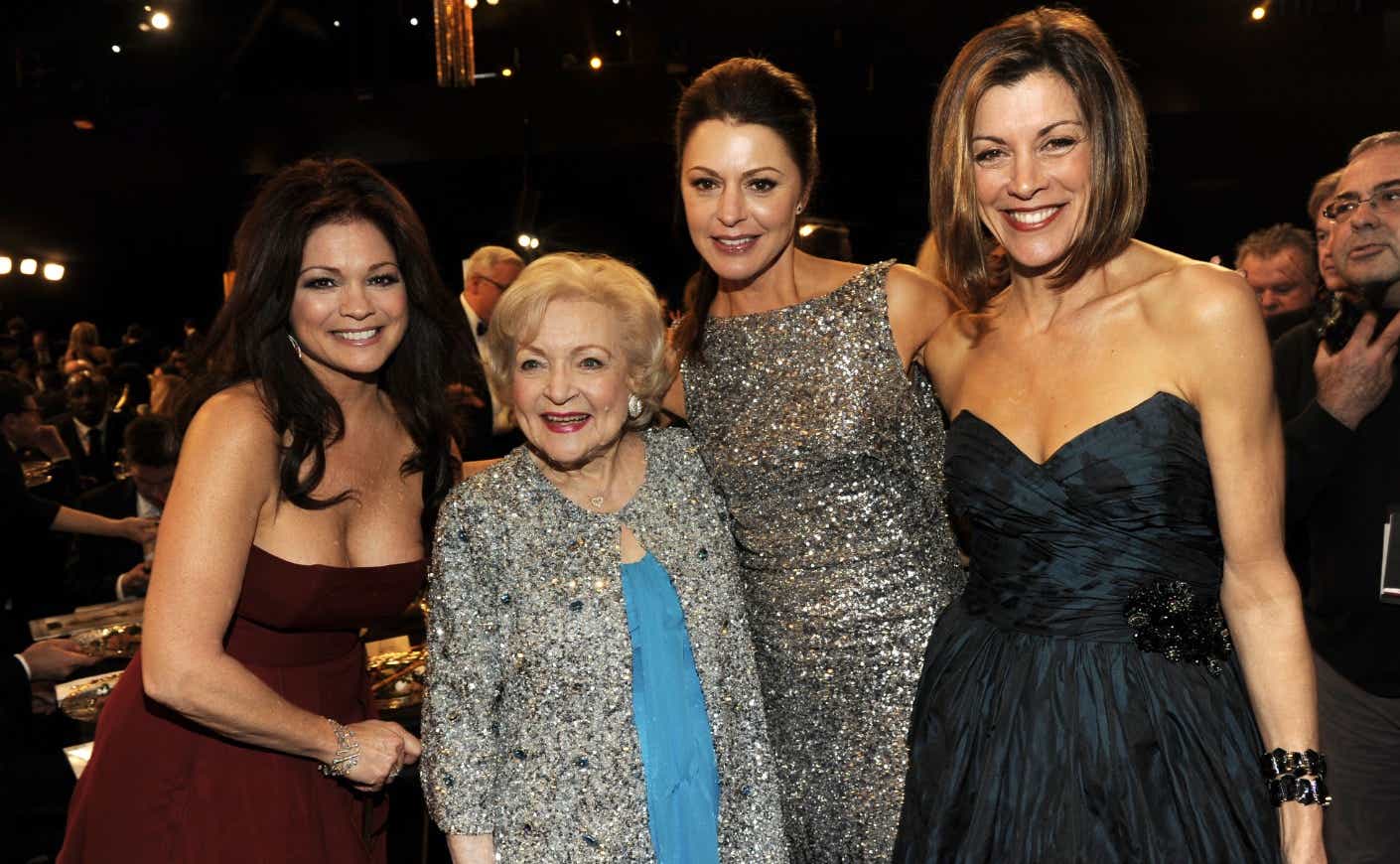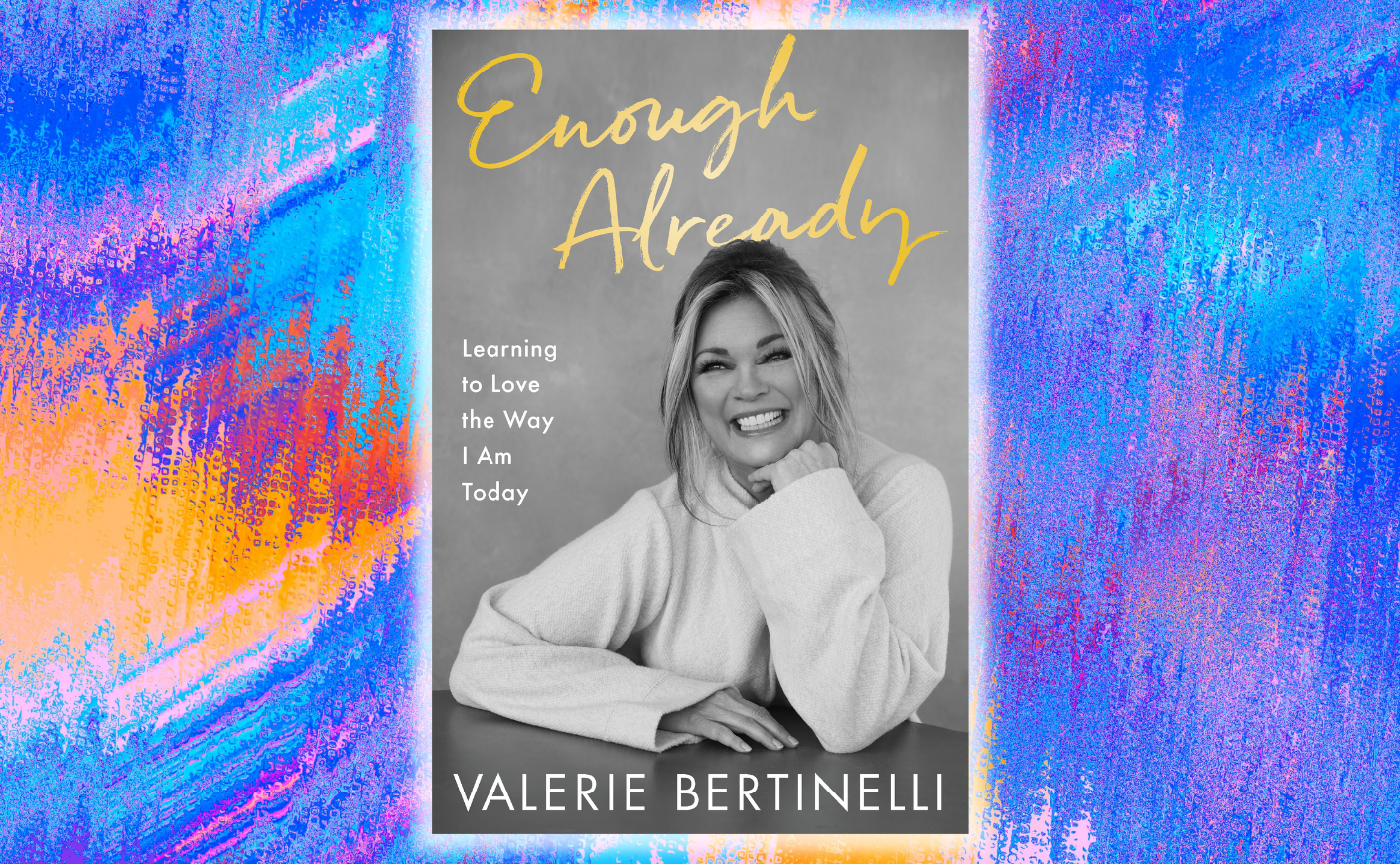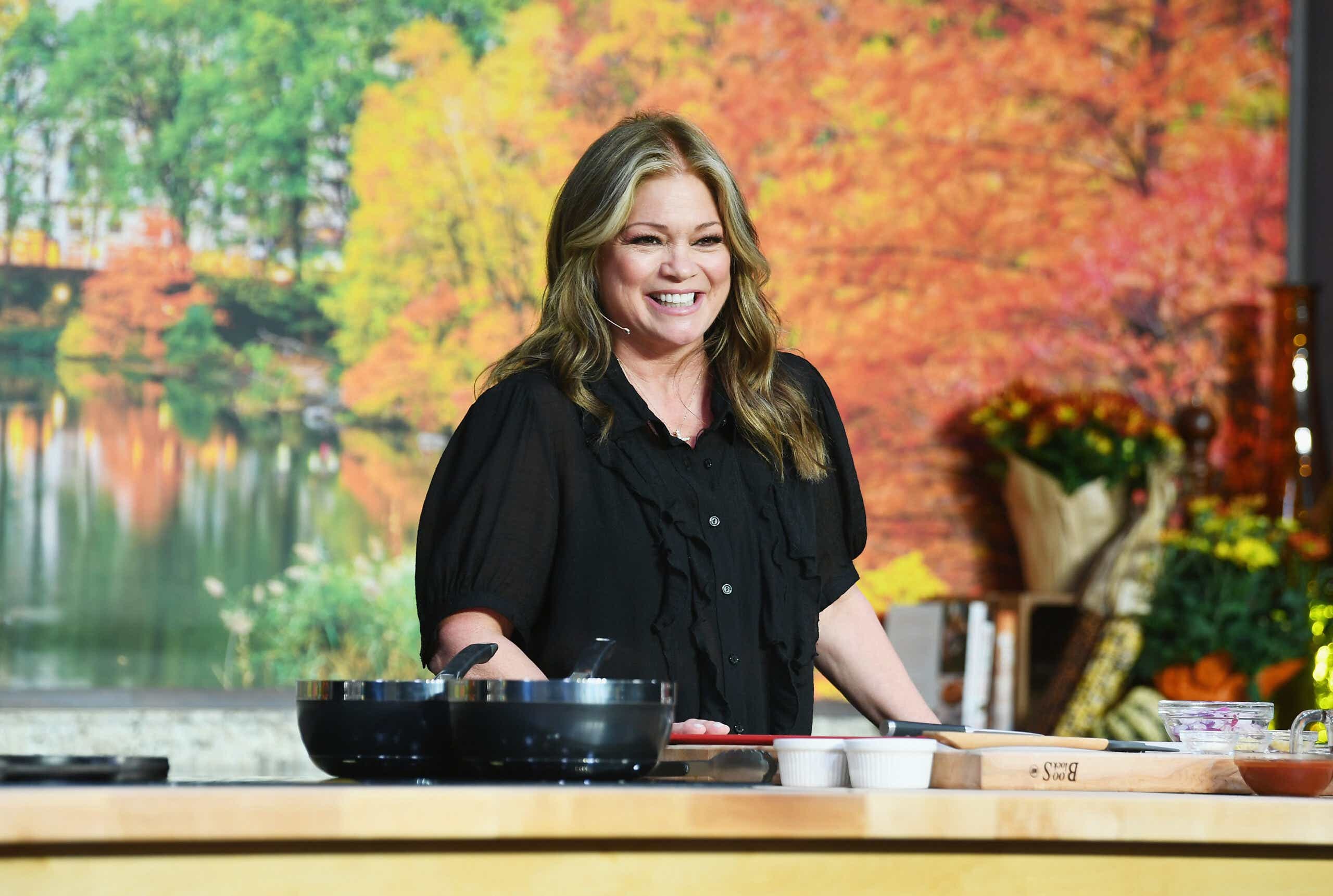We’ve known Valerie Bertinelli for a long time, but she still has a lot to tell us.
She first splashed onto the scene back in 1975, when she starred in the classic sitcom One Day at a Time. After stints on series like Touched by an Angel and Hot in Cleveland (which co-starred the late television icon Betty White), Bertinelli pivoted to the food space. These days she keeps busy with projects like Kids Baking Championship and Valerie’s Home Cooking, for which she’s won two Daytime Emmy Awards.
And now she’s getting very, very personal in her searing new memoir, Enough Already: Learning to Love the Way I Am Today. She goes deep on her years of anguish about her weight and her relationship with food, as well as the raw pain of losing her parents and her ex-husband, rock legend Eddie Van Halen (with whom she had her son Wolfgang, who just earned a Grammy nomination with his band Mammoth WVH).
After putting her deeply honest work out into the world, Bertinelli called up KCM to discuss her decision to lay it all out there, the childhood memories that caused her fixation on body image, and her newfound strategy for pulling herself out of a negative spiral.
Before we talk about your book, you were lucky enough to work with our beloved Betty White on Hot in Cleveland. What are your favorite memories of her?
Valerie Bertinelli: Oh, all of them. Absolutely all of them. She was amazing to watch, first of all — to watch the way she worked and how it was so natural to her, but it was also honed through years of doing what she does. And then just being around her as a human being. My favorite moments were sitting in the kitchen before we would start blocking the show, just hanging out and talking with Betty and Jane [Leeves] and Wendie [Malick]. Then we’d go out to dinner, us four girls, and we would have so much fun. I’m so grateful I was able to work with her for five years and see what a light she was in the world.

In Enough Already, you write, “I have gone back and forth about whether I am revealing too much and being too open.” What made that so challenging?
I treated the book as basically a journal at first. It was mainly working my way through grief and the negative self-talk that I would have. It was really like a therapy session, and it was very cathartic. Then reading it back was like, “Oh, do I really want to let other people read this?” And I had a conversation with my editor, who was like, “I’ve had the same feelings. Reading it feels like I’m your best friend, and we’re talking about stuff, and I’m not feeling so alone anymore.” And I’m hoping that’s how the book connects with a lot of other people.
One of the things you’re very candid about is dealing with loss in the deaths of your ex-husband and your parents. What’s your advice for someone struggling with that grief?
It’s hard, and it’s OK that it’s hard. I mean, for a while there, I felt like I had a big hole in my heart. It hurt to breathe. And that’s just what we have to go through sometimes. We have to feel the pain to get to the other side so you can remember. I think the good thing about grief is when you start to just hold on to all the love and the good memories, and you let go of the bad memories and the challenges that you may have faced with that person.
Katie’s memoir, Going There, explores grief as well, and she’s talked with us about how complicated it is to write about someone who has died. Are there things you’ve come to newly appreciate about people you’ve lost by writing about them?
For sure — also a lot of regrets that I didn’t say or do the things that I wish I could do right now. And I know I’m not the only person that feels that way. If I can be helpful in any way, it’s to help people say, “I can treat you right now as if I won’t see you again, and I can tell you how much I love you, and I can be there for you.”
We don’t know how much time we have left with people. Even though I knew in my brain that Ed was dying, a big part of me was like, “No, he’s going to get through this. He gets through everything. I’ve been dealing with Ed’s cancer for 20 years, of course he’s going to be fine.” And all of a sudden, it comes on quickly, and then in slow motion, it’s like, “Oh my God, I’m not going to be able to see him again,” and it’s horrifying.

Sharing that is impactful, and something else you’ve shared with people over the years is your struggles with weight. But you say you’re done fixating on that. Do you have a better understanding now of why body image has been so tough for you?
Oh, for sure, and I wish I had known this a long time ago so I could have stood up for myself more. I learned at a very, very young age that you are unlovable when you gain weight — which is a total lie. But I saw that happen in my life. I saw my dad mistreat my mom when she gained weight. I saw an elementary school teacher point at my belly and say, “You’re going to want to keep an eye on that.” Before that, my body wasn’t something that I thought about. And these are things that we don’t even realize are sinking into our children. I mean, every time I would go in for my driver’s license and have to change my weight, it would freak me out. It’s just stupid. That’s not a way to live life. It doesn’t matter what I look like. Am I a good human being? Am I kind to people? That’s what I want to be remembered for — how I made someone feel, not how I looked.
Has hosting a cooking show made finding peace with food harder for you?
At first, it did make it very challenging for me because I was still in that mindset of, “If I don’t look a certain way…” But it wasn’t the food that was doing it. It was the way I dealt with my pain, through suppressing my feelings with food. Food made me feel so good because that’s how I learned about love. That’s how my Noni and my mom and the women in my life showed their love, through the beautiful food they would create. So I went through many years where I didn’t use food the way it was meant, to nourish my body. So when I got [Valerie’s Home Cooking], I was so excited because I was able to share and create food for people again. It’s just recently that my brain is starting to click: It’s not the food that’s hurting me, it’s the way I use it.
We love all the dishes you make on the show. What are you cooking during these frigid winter months?
Soups! I just came up with a recipe that I made for my son that I loved. I cut up a bunch of butternut squash and sauteed some ground turkey, then just started building a soup from there. It was really delicious — and good for you. There are ways to make food comforting and still be healthy for you. But I think what makes food healthy is the way you use it, the way you look at it, and the way it makes you feel.
One of the big themes in your book is learning to embrace yourself as you actually are. When you have a really tough day, how do you lift your spirits?
I actually went through this and filmed the whole thing and put it on my Instagram. It was interesting because I knew what I was doing. I saw a picture and I didn’t like the way I looked, and I felt myself going into this spiral of self-loathing. And I said, “I’m going to work my way out of this.” So I took myself out of the room I was in, and I went outside and got in the rain because I wanted to switch my brain from going into this dark place. And I was able to do that just by talking about my feelings, looking around, finding something to be grateful for. I write in the book, “Gratitude is the stairway to joy.” You must be grateful for what you have in your life — good, bad, and ugly — to get to joy.









